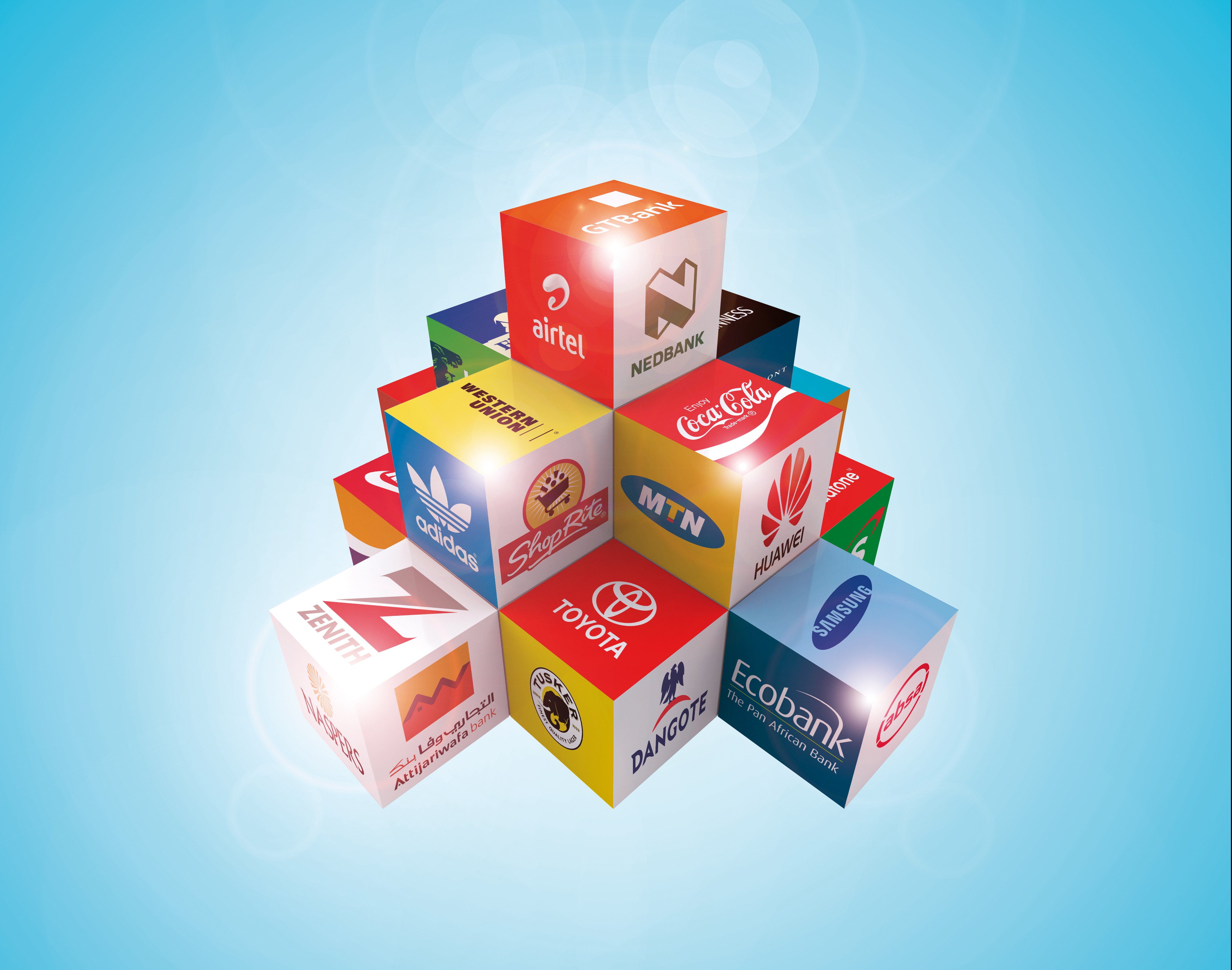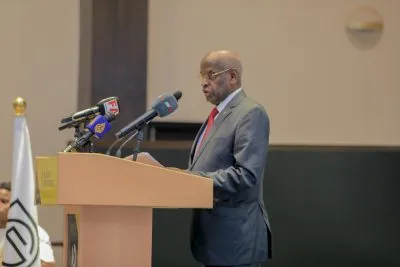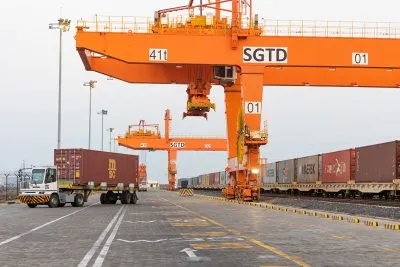African brands have increased their share of the Top 100 most admired brands in Africa by 4% to comprise 17% in our 2022 survey. This is an improvement from an all-time low of 13% in 2020 and 2021.
As countries and consumers look at local solutions following the pandemic and with the acceleration of AfCFTA’s goal of driving greater intra-African trade, African brands are starting to re-assert their position in the Brand Africa 100: Africa’s Best Brands ranking.
Upstart brands such as South Africa’s lifestyle footwear brands, Bathu (#52) and Drip (#65) – despite being primarily available in South Africa – have rocketed into the Top 100.
E-commerce is making these local brands global, and with a massive growth in retail footprint despite the pandemic and an increase in marketing spend they are quickly establishing themselves.
This year’s ranking saw 17 brands fall out of the ranking, heralding a notable return of African brands. When the rankings started, African brands represented 34% of the companies listed.
Nigeria’s telecommunications giant Glo (up 31 spots), Ethiopia’s global airline brand Ethiopian Airlines (up 24 spots), e-commerce giant Jumia (up 19) and Ghana’s Kasapreko Drinks – the highest returning entry at #31 after a five-year absence – lead the African surge.
Ethiopian, Africa’s most recognised flagship airline, continues its rise after entering the rankings at #51 in 2021. It is arguably the only African airline that effectively weathered the Covid storm, managing to divert its fleet into the movement of goods and cargo. Massive infrastructure investment at Addis Ababa’s Bole International Airport has undoubtedly enhanced the brand appeal.
Glo rebounded, gaining back its fall last year, on the back of its continued support of key sporting events and a ground-breaking N750m incentive deal that strengthened its relations with its dealers in appreciation of their support.
Jumia may have had a difficult time on the stock exchange but it has proven agile in its ability to extend its reach and services across the 11 markets in Africa in which it operates.
It has established 3,000+ pickup points, and expanded its network of thousands of partners and sellers who use their network to move goods. A shift in focus to everyday product categories including groceries and beauty products has catapulted demand and consequentially its brand.
South Africa’s MTN (up 1) and Nigeria’s Dangote (also up 1) have over the years been the standard bearers of African brands. They continue to set the pace as the most admired African brands and the most admired brands that symbolise African pride respectively.
MTN, which is consolidating its footprint in Africa and recently granted a licence to establish a mobile money payment services bank in Nigeria, which is incidentally their biggest market, has returned to the Top 10 as the highest ranking African brand.
Most admired African brands
In addition to the main ranking, Brand Africa produces two rankings focusing on the most admired African brands – for more information on our methodology see below.
The first ranking is an extraction of the African brands recalled spontaneously out of the top 100 brand rankings.
The second, “prompted” ranking is based on a specific recall of African brands to produce the top African brands. MTN has switched places with Dangote as the #1 African brand (recalled when prompted) to consolidate its status as the #1 African brand.
In the main table, African brands gained ground on their non-African brand counterparts. The biggest losers included America’s Dell Technologies, which has fallen 66 places, China’s Oppo, which is down 26, and US stalwart Ford, down 24 spots.
The leading brand-building nation in Africa remains South Africa which has managed to establish brands such as MTN and DSTV (#37) in the African psyche.
South African brands represent 41% of African brands (seven out of the 17). Nigeria, led by Dangote and Glo, has four brands in our top 17. The rest is split between Ghana (Kasapreko Drinks, #31), Tanzania (Azam, #86), Uganda (Mukwano, #72), Zimbabwe (Econet, #50), Kenya (Tusker, #63) and Ethiopia (Ethiopian Airlines, #24).
South Africa is the most diverse brand building country in Africa with a portfolio that spans telecommunications, apparel, media and consumer non-cyclical.
Non-African brands remain dominant in Africa
Other than MTN (#10) which pushed down Zara to #11 compared to the previous rankings, non-African brands, led by Nike for the fifth consecutive year, continue to dominate with a share of 83% of the most admired brands in Africa – with the Top 10 largely unchanged.
The biggest mover overall is American sports brand Under Armour (up 34), the brand partner of UFC, whose international popularity has rocketed in recent years.
Asia raised its share of the Top 100 by 4 points to represent 20% of the brands represented at the expense of European and North American brands.
European brands now represent 35% of our ranking, down from 42% in 2021, while North America lost two points with 28 brands in our Top 100. Nonetheless, American icon Nike still leads our ranking. China’s leading brand is Tecno at #6. Part of Chinese group Transsion, Tecno dominates smartphone sales across the continent
Financial services: Telcos compete with Africa's banks
When asked about their most admired financial services brands, African brands dominate our ranking with 68% of the share. In Africa, of the 17 African brands mentioned, eight are South African, five Nigerian and two Kenyan.
In 2021, African Business posed an important question: Will telcos ever replace banks as financial institutions? That question is being answered at speed with the rapid growth of telecommunication brands in the financial space. Safaricom’s Mpesa and Econet’s Ecocash gained prominence when they became the main transactional channels for their respective economies, in Kenya and Zimbabwe.
Telco giants Airtel, MTN and Orange Money are all now important competitors to banks and this can be seen as they all feature in our Top 25 most admired financial services brands.
With their deep pockets and penchant for innovation, as well as unrivalled reach, telcos continue to be the driving force for change in financial services and will continue to challenge the status quo, muscling out or forcing the more lethargic legacy financial institutions to become more agile. Covid-19 has accelerated the cashless mobile money space and this trends looks irreversible.
Media: Trend towards digital and mobile continues
On the news front, we still see non-African global brands such as BBC, CNN and Al Jazeera dominate our ranking of the Top 25 most admired media brands. Broadcaster DSTV consolidates its position as the #1 African media brand. Nonetheless, as in financial services, the trend is firmly towards digital and mobile in terms of news consumption.
While the pandemic was supposed to be seen as a positive catalyst for new entrants, subscription based media consumption appears to be on the decline with the likes of Netflix, down two positions, posting its first fall in subscribers.
There’s been an increase in the number of new OTT (over the top) platforms entering Africa. It is estimated that African OTT movie and TV episode revenues will reach $2bn by 2027, or three times more than the $623m in 2021. Canal+ has been on the rise as it expanded beyond its French base.
In 2022, Canal+ Rwanda added English channels to its offering and broadcasted AFCON 2022. South Africa’s national broadcaster SABC moved up the rankings on the back of its new streaming service partnership with Telkom and a greater focus on local content.
Chinese social media giant TikTok, the most downloaded app globally in 2020, is a new entrant at #15 and its success can be attributed to its popularity among young Africans. The second most followed account on TikTok is that of Senegalese-born star Khaby Lame.
With the increase in sales of Chinese made smartphones, deepening broadband penetration rates and cheaper internet data tariffs, enabled by quality made-in-China brands such as Tecno, mobiles are becoming the primary media channels for Africa’s consumers.
Not surprisingly, the continent’s marketing firms are migrating to such platforms to connect with consumers. In response, TikTok has opened local offices and created specialist teams in the key markets of Nigeria, Kenya and South Africa, to organise meet-up “creator sessions” with social media influencers, teaching them how to engage with and utilise the platform.
Despite privacy issues surrounding WhatsApp, the messaging app owned by Meta (previously Facebook) entered the Top 25 of the most admired media brands. The increase in the adoption of WhatsApp as a business tool has seen continued growth in the user base of the platform. Many big brands are using WhatsApp as a customer service tool. In most African countries WhatsApp is used to facilitate trade.
Small number of African brands in media table is a worry
The incredibly small share of African media brands is an urgent challenge to African creators. There are many stories of African brands that need to be told and amplified to inspire the next generation of brand builders.
A recent Africa No Filter analysis of over 750m stories published between 2017 and 2021 on more than 6,000 African news sites and 183,000 sites outside the continent “show the keywords, frames, stories and narratives associated with business in Africa are dangerously distorted, with an overemphasis on the role of governments, foreign powers and larger African states alongside an under-appreciation of the role of young people, women, entrepreneurs, creative businesses, smaller successful African states and Africa’s future potential.”
A continent this tech-savvy should be creating more of its own digital and mobile media platforms and channels – and shape its own narrative.
Riding the African pride wave
Another report by Africa No Filter entitled “One Africa” based on a survey of 4,500 African youth found that “most young Africans are optimistic about the continent and eager to experience it for business and pleasure.”
Building on this optimism, this year Brand Africa sought to establish which brand in Africa embodies African values and culture. In essence, which brand best symbolises pride in Africa.
The same names keep cropping up – South Africa’s MTN, Nigeria’s Dangote and Ethiopia’s Ethiopian Airlines. Kenya Airways also features, showing the importance of national carriers even where unprofitable. They are seen to embody the African spirit and are vectors of the image and identity of the continent.
Brand Africa recognises leading African brands
While the rebound in African brands is notable, the results will not be sustainable if the charge is not led by Africans.
In 2022, Brand Africa sought to recognise those leaders who are the catalysts for the growth of Made in Africa brands both in big corporates, and those who have championed and supported the development of great local brands in industries such as branding, marketing communications, academia and other related fields.
Based on a 4-P criteria (Provenance of the leadership, a Product that has created a better life for Africans, Performance of the business under the leader and positive Presence of the leader in both the media and their industry), Brand Africa set up committees to select leaders who fit that criteria.
Starting off in Nigeria – where Brand Africa held its first post-Covid live event – Segun Agbaje, GT Bank Group CEO, and Biodun Shobanjo, founder and chairman of Troyka Group and a doyen of Nigerian marketing, were awarded the inaugural Africa Brand Leadership Excellence awards for inspiring brand-led excellence that drives the growth of Made in Africa brands.
Want to continue reading? Subscribe today.
You've read all your free articles for this month! Subscribe now to enjoy full access to our content.
Digital Monthly
£8.00 / month
Receive full unlimited access to our articles, opinions, podcasts and more.
Digital Yearly
£70.00 / year
Our best value offer - save £26 and gain access to all of our digital content for an entire year!
 Sign in with Google
Sign in with Google 



